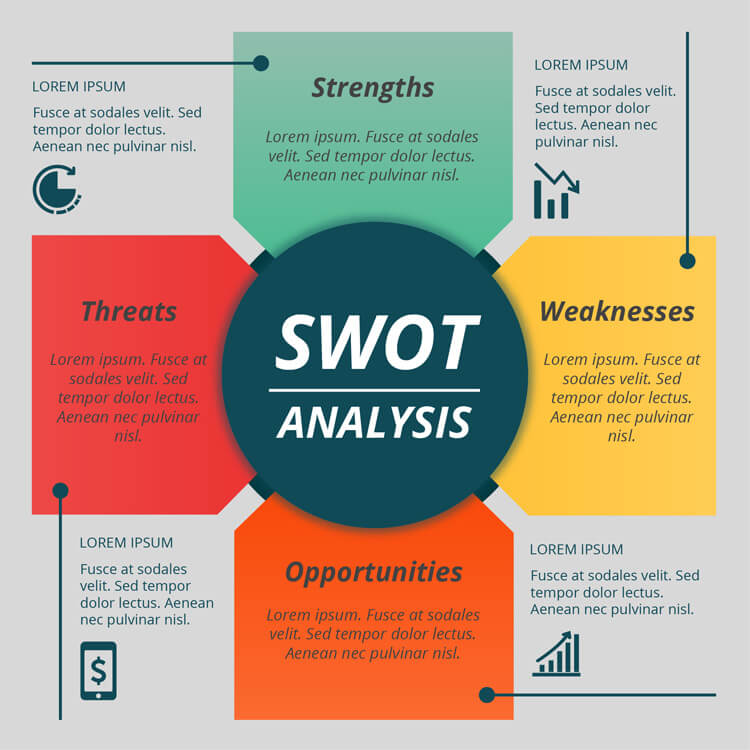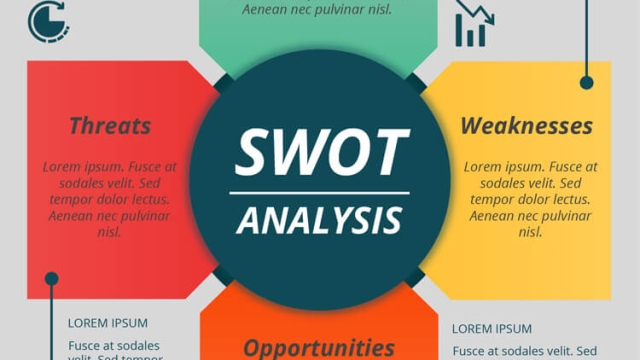Are you a small business owner in the United States looking to unlock your full potential? If so, you’re in the right place! In today’s competitive landscape, it’s important to have a strategic game plan in place to set your business apart from the rest. This is where the power of SWOT analysis comes in.
SWOT analysis, which stands for Strengths, Weaknesses, Opportunities, and Threats, is a powerful tool that can help you gain valuable insights into your business and make informed decisions. By identifying your strengths, you can leverage them to your advantage, while pinpointing weaknesses allows you to address them and strive for improvement. Moreover, recognizing opportunities helps you tap into new markets and maximize growth potential, while being aware of threats enables you to proactively mitigate risks.
But wait, there’s more! If you’re feeling overwhelmed by the complexity of conducting a SWOT analysis or simply don’t have the time, there’s an easy solution available. Introducing EasyBA, a comprehensive Business Analysis service designed specifically for smaller businesses like yours. EasyBA encompasses various areas including product management, financial analysis, and data analysis, providing you with the tools and expertise necessary to unlock your business’s full potential.
So, don’t let your business remain stagnant. Equip yourself with the SWOT analysis game plan and leverage the power of EasyBA to propel your business towards growth and success. In the following sections, we will dive deeper into the different components of SWOT analysis and explore how EasyBA can be a game-changer for your business. Let’s get started!
Understanding the SWOT Analysis
The SWOT Analysis is a powerful framework that helps businesses to assess their internal strengths and weaknesses, as well as the external opportunities and threats they face. By gaining a clear understanding of these factors, companies can make informed decisions and develop effective strategies for growth.
Strength Weakness Opportunity Threat
To begin with, the first step in conducting a SWOT Analysis is to evaluate the internal strengths of the business. This involves identifying the unique capabilities, resources, and expertise that set the company apart from its competitors. These strengths can include a strong brand reputation, a skilled workforce, advanced technology, or proprietary knowledge.
Next, it is essential to examine the internal weaknesses that may hinder the business’s progress. These are areas that need improvement or where the company lags behind its peers. Weaknesses can be related to outdated systems or processes, lack of financial resources, limited market share, or a subpar product or service offering.
Moving on to the external factors, the analysis focuses on identifying opportunities that the business can leverage to its advantage. Opportunities can arise from changes in the market, emerging trends, new technologies, or even the weaknesses of competitors. By capitalizing on these opportunities, a business can expand its customer base, enter new markets, or introduce innovative products or services.
Finally, the last aspect of a SWOT Analysis is assessing the external threats that could potentially harm the business. These threats may include intense competition, changing consumer preferences, economic downturns, or regulatory challenges. By understanding and preparing for these threats, businesses can mitigate risks and develop strategies to stay resilient in the face of adversity.
In summary, the SWOT Analysis is a valuable tool that enables businesses to evaluate their strengths, weaknesses, opportunities, and threats. By gaining a comprehensive understanding of these factors, companies can devise effective strategies to unlock their true potential and achieve sustainable growth.

Navigating Privacy Risk Assessment
In the world of business, understanding and managing privacy risks is essential for long-term success. Privacy risk assessment allows organizations to identify, evaluate, and mitigate potential threats to the privacy of their customers’ information. By conducting a thorough privacy risk assessment, businesses can ensure compliance with data protection regulations and build trust with their stakeholders.
One approach to privacy risk assessment is the SWOT analysis, which stands for Strengths, Weaknesses, Opportunities, and Threats. This framework allows companies to examine both internal and external factors that may impact their privacy practices. By identifying strengths and weaknesses, businesses can understand their current privacy posture and identify areas for improvement. Additionally, by analyzing opportunities and threats, organizations can anticipate and respond to emerging privacy challenges.
For smaller businesses in the US that are looking to grow, an effective privacy risk assessment can be a game-changer. EasyBA, a comprehensive Business Analysis service, offers privacy risk assessment as part of its suite of tools and services. By leveraging EasyBA’s expertise in product management, financial analysis, and data analysis, smaller businesses can gain valuable insights and strategies to enhance their privacy practices.
Understanding the importance of privacy risk assessment and taking proactive measures to ensure data protection is not only a legal requirement but also a competitive advantage. By embracing privacy as a core value, businesses can unleash their potential for growth and build a trustworthy relationship with their customers. With the right tools and expert guidance from services like EasyBA, navigating the complexities of privacy risk assessment becomes more manageable, paving the way for future success in the evolving business landscape.
Using EasyBA to Propel Small Businesses Forward
To achieve success in today’s competitive business landscape, small businesses need an effective strategy that leverages their strengths and identifies areas for improvement. This is where EasyBA comes in. EasyBA is a comprehensive Business Analysis service that aims to empower smaller businesses in the US to overcome obstacles and achieve their growth potential.
With EasyBA’s suite of services, businesses can perform a thorough SWOT analysis to gain valuable insights into their internal strengths, weaknesses, as well as external opportunities and threats. By identifying these key factors, businesses can align their strategies with their unique strengths and capitalize on growth opportunities, while mitigating potential risks.
One vital aspect of conducting a SWOT analysis is privacy risk assessment. EasyBA understands the importance of safeguarding sensitive business data and offers expert guidance in this area. By evaluating data protection measures and implementing necessary protocols, small businesses can ensure the security and privacy of their information while making informed decisions.
EasyBA goes beyond the traditional boundaries of a SWOT analysis and offers additional services such as product management, financial analysis, and data analysis. This holistic approach allows smaller businesses to gain a comprehensive understanding of their market position, financial standing, and potential growth opportunities. By leveraging these insights, businesses can make informed decisions to drive their expansion and success.
In conclusion, EasyBA provides small businesses in the US with a powerful toolset to master the SWOT analysis gameplan. By leveraging its services, businesses can identify their strengths, address weaknesses, seize opportunities, and mitigate threats. With this knowledge, small businesses can make informed decisions, propel their growth, and unlock their full potential in the competitive market landscape.
